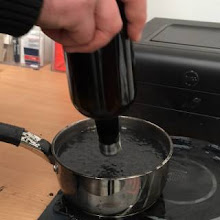When all has been said and done, and the truth of the matter
has been settled for good and all, remember: after all, nobody’s ever that
right, all the time; and even if this were not so, and after all that, death
shuts all open books, flat, and without comment, no matter what’s written in
them.
Over-reaction will always be a subject for fair comment to
those people who can remain in control of themselves without overreacting.
Blessed are those who have their work, for they shall always
have more to do.
There is no substitute for hard work, and the only remedy
for that is to get someone else to do it for you.
The dumber you are, the more hard work you can be asked to
do.
Saying something quite profound can still prove to be rather
dull to the profoundly uninterested.
A failure
is on his own: nobody either wishes to lead him or follow him, anywhere,
anyhow, or anyway. This is the spur of industry.
Those who tend to use oblique praise in their insinuations
should at least try to be more direct about it.
What can we do about those who clearly dislike us? Well, the
best thing to do is to clearly recognize what they look like, long before they
get anywhere near us.
Even the nicest people can be quite unpleasant at times;
perhaps that’s because they often need to be, but more often it’s usually just
because they can.
Chucking your whole kit and caboodle in with luck when you
don’t need to can be a very risky thing to do in the luck of the draw, so why
do it? Take a chance on permanence instead.
A fellow can sit down and do nothing for a very long time,
and, it should be noted, even a man can do this when he can find nothing better
to do with himself other than contemplate the infinite that’s been encapsulated
in a nutshell, for effect.
Push a man out of kilter and he’ll run, not walk to the edge
of the cliff; but making him jump even then needs a good push to go with it or else he just won’t budge.
People do like to see other people working, and the more the
merrier (and all at once or in small groups of them), if only for the exercise
it gives them in doing so.
The observative is much more pernicious than the
contemplative, although the contemplative also has its moments.
Reserving judgement is not the same as making no judgement,
but in effect it’s probably just as obtuse.

No comments:
Post a Comment